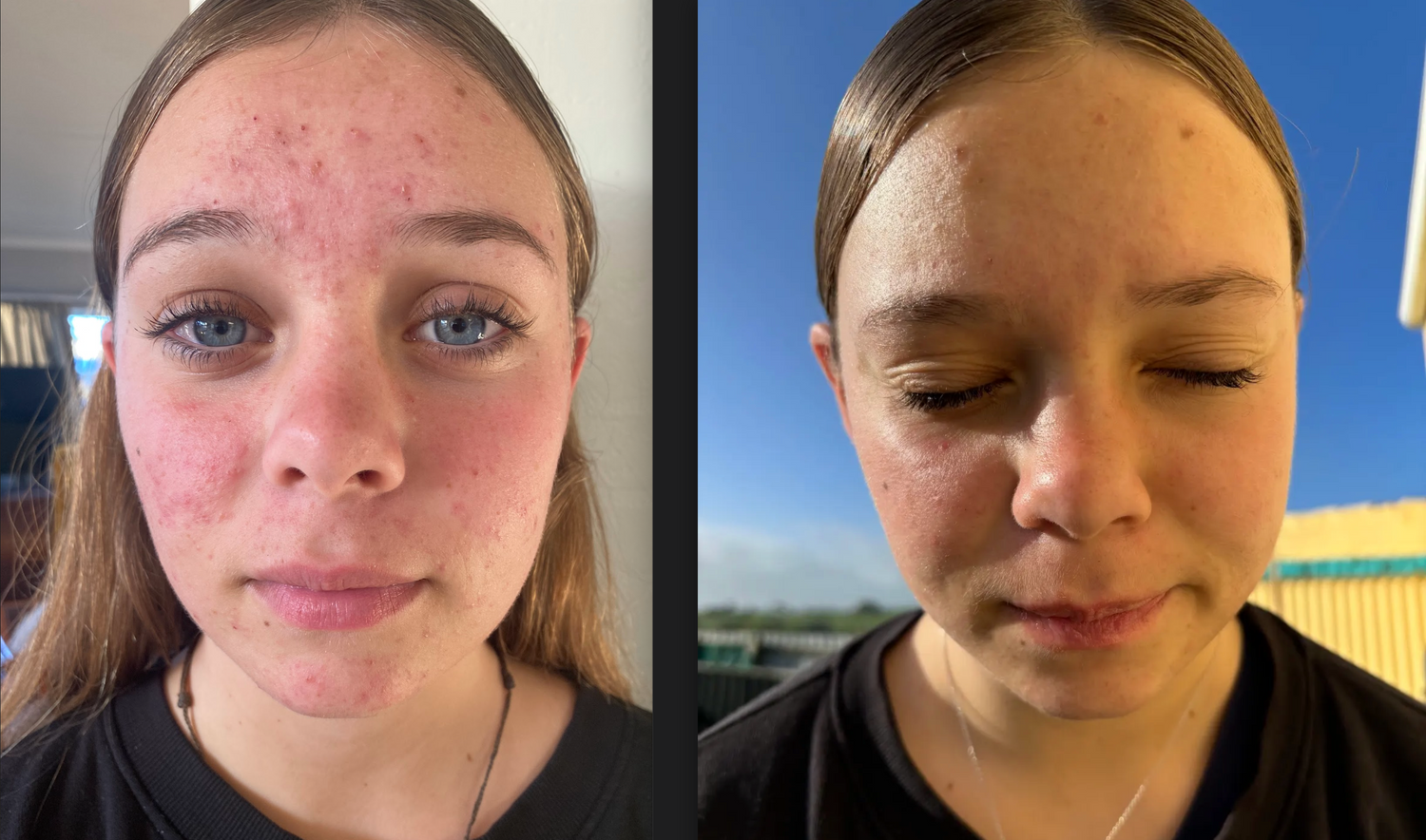10 REASONS YOU SHOULD USE TOPICAL MAGNESIUM FOR LONG-TERM HEALTH AND WELLBEING.
Dramatic? Yes! Accurate…? Well, almost. While death won’t be swift or obvious, a lack of minerals over time causes many health issues, so the impact of long-term magnesium deficiency isn’t visible, but is definitely impactful and critical, and could certainly lead to the type of diseases that cause death.
WHAT IS MAGNESIUM?Well, essentially it is natural Magnesium Chloride, a substance found in rampant abundance in the sea water and all over our earth.
WHY IS MAGNESIUM ESSENTIAL?It is in every single organ in the body and it is a vital mineral for ongoing health and wellbeing - physically, mentally and emotionally. More than half of the population of the western world is deficient in magnesium, and that means they will also be deficient in other nutrients, such as calcium – as magnesium is essential for calcium uptake. Basically, you need magnesium in your body if you want it to function correctly and healthily, and to age well, and if you want to prevent disease, illness and immobility in later life.
So yeah, Magnesium is pretty darn important!
Magnesium is one of 7 macro-minerals and is unable to be stored by the body, or made by the body, therefore you need to intake a relatively large amount daily (minimum 100mg, ideally much more). You can get this in your diet from various sources, and you can also take a variety of supplements orally or topically.
WHAT DOES IT ACTUALLY DO TO THE BODY?Magnesium can benefit the body in other ways, such as through enhancing fitness performance, and aiding post-workout recovery. This magic mineral impacts over 300 of the body’s enzyme reactions, which in turn impacts the health of muscles and nerves, the regulation of blood pressure, and the production of energy in the body's cells – so becoming deficient in such a critical mineral can affect the body’s function in a very wide range of ways.

- Bones rely on Magnesium – it is required for calcium absorption.
- Magnesium is critical to nerves, muscles and the blood, and how they function.
- Magnesium affects the metabolism of critical nutrients in the body.
- Magnesium helps with the formation of cells, and DNA repair.
- Magnesium eases aches, cramps and spasms, and relaxes nerves and muscles.
- Magnesium is involved in over 300 health and wellness related reactions within the body.’
- Magnesium is an important mineral for insulin regulation – so crucial for diabetics.
- Magnesium regulates hormones such as serotonin.
- Magnesium impacts cortisol regulation so is crucial to calm and relaxation.
- Crucial to physical performance and recovery – muscle cells, joints, and energy.
WHY DO WE LACK THESE MINERALS IN THE FIRST PLACE?
Now more than ever we are not getting the adequate amount of minerals and nutrients from our daily diet, so supplementation is often required. This is due to changes in our diet over generations, change sin our farming and agricultural food practices, and things like the fact we now filter most of the water we drink. Magnesium is also depleted through a lack of sleep, high stress, and consumption of alcohol, caffeine and sugar. Many foods are rich in Magnesium – nuts, seeds, fruits, dairy, vegetables and grains. Like everything in life, the amount each individual requires will vary from person to person - some people will require more Magnesium than others, and some will choose to use more due to physical exertion or performance, and how they feel Magnesium supports them. Magnesium is lost in sweat, and generally people do not replenish their intake enough from their diet following exercise, leading to cramping, joint aches, tiredness and headaches. Generally speaking, 60% of the Western population would benefit from increasing their Magnesium on a daily basis due to their lifestyle factors and the food they eat. The recommended adult daily intake is between 300-400mg.
Magnesium ions are important elements that help break down the food we eat and turn it into energy, and it is essential in the synthesis of molecules like DNA, RNA and proteins. And we’re not going to get much more technical than that, as it’s getting deep into biology and science – BUT we impress upon you that this earthly mineral is critical right down to a cellular DNA level within the body.
WHAT ARE SOME SYMPTOMS/NEGATIVE EFFECTS THAT HAVE BEEN LINKED TO MAGNESIUM DEFICIENCY?- Cramps
- Muscle contractions, and sore muscles
- Abnormal heart rhythm (arrhythmia)
- Seizures
- Numbness and tingling
- Osteoporosis
- Asthma
- Inflammation
- Migraines and Headaches
- Stroke
- Coronary Heart Disease
- Hypertension and cardiovascular ‘disease
- Decreased insulin sensitivity
- Metabolic syndrome (high blood pressure, high blood sugar, excess waist fat)
- Gastrointestinal issues
Magnesium also has a direct affect on how calm a person feels, and that is why many people have used Magnesium to aid their sleep for many years. Magnesium can quiet a racing, thought-filled mind, it can calm restless-leg syndrome, and it can help you drift off to sleep faster through relaxing the central nervous system.
WHERE CAN WE FIND MAGNESIUM?Magnesium can be found in a range of natural food sources in varying doses;
- Bananas,
- Raspberries,
- Brocolli,
- Cabbage,
- Spinach,
- Kale,
- Salmon,
- Tuna,
- Nuts,
- Seeds,
- Avocado,
- Chickpeas

Obviously some sources will have higher levels of Magnesium content than others, ie: an average banana has around 33mg of Magnesium, Spinach has 157mg per 1 cup, and Dark chocolate has 64mg in an average 30gm serving.
But, these foods will only have rich mineral content if they were grown in good soil, using good farming practices, and on land where pesticide concentration hasn’t depleted the natural mineral content of the earth…. Which isn’t always the case – so guaranteeing a set mineral content in food can be very hit and miss! There are also side-effects for taking way too much Magnesium too, so don’t over do it!
OTHER WAYS YOU CAN TAKE MAGNESIUM…Is via oral magnesium supplement, using magnesium chloride flakes in a deep bath, or via transdermal Magnesium therapy - absorbing it directly through the skin in a spray. Any and all of these options can easily become part of your morning health and skin care routine. I personally use a combination of two for various reasons, and I’ll give you a quick insight as to why that is the method I choose.
I take some of my Magnesium orally via a high dose oral supplement, and I am also fortunate to ingest a small amount of Magnesium through my daily nutritional protein shake. These oral ingestions ensure I am getting roughly the daily adult requirement… BUT I also understand that because I have IBS and ‘gut issues’, that the bioavailability of nutrients and minerals taken orally, even through food, is going to be less than that of a healthy gut - so I use a spray Magnesium as well. I also exercise up to 6 times per week meaning I lose, and require more Magnesium. The use of a Magnesium spray daily (usually on my back, neck, legs, arms, and anywhere I experience muscle soreness or aches) ensures that the amount that may be lost through the gastrointestinal system and through exercise and other lifestyle factors, is further supplemented dermally (through the skin). I am this way ensuring that my body is getting Magnesium in a range of ways consistently over time, and won’t be majorly affected from a day where my gut is off-kilter or I forget my supplement or don’t spray my body.
Each individual will need to monitor their own intake relevant to their own health, or through their physician. Magnesium is a common medical form of laxative, or in use as preparation for bowel surgery, and as an anti-acid for indigestion, as it quite rapidly can affect the stomach, so don’t overdo the oral supplements!
Some people apply magnesium on their skin to treat infections, boils, skin ulcers and other infectious skin lesions, however one must use caution as applying Magnesium to skin won’t harm it, but may cause an intense stinging sensation which some people find quite hard to bear!
THE BIGGY - POOR SLEEP!So, one of the most common ways people are affected by Magnesium deficiency is through POOR SLEEP! Most people in the modern world have come to accept they are ‘terrible sleepers’ and largely attribute this to factors outside of themselves, which is unwise as the solution can often lie within!! Poor sleep in a busy world, does not have to be the norm – it’s about preparation, and I used to be firmly in that camp where it took me up to an hour or more to wind down and actually nod off – but, not any more!! As well as preparing your mind for sleep by not being on your phone, and closing curtains and dimming lights, you need to prep your internal body for sleep as well… and this is done through mineral and nutrients!
Magnesium activates the parasympathetic nervous system that tells the brain it is time to chill out and wind-down.
Magnesium regulates neurotransmitters, sending signals to the brain and nervous system, and then it also regulates the hormone melatonin which is responsible for our daily sleep-wake cycle within our body. Secondly, Magnesium binds to our GABA receptors, which is the neurotransmitter responsible for quieting down the nerve activity in our bodies. So you are probably cottoning onto the fact that Magnesium is ESSENTIAL for sleep, and CRITICAL for GOOD sleep. Not only does it help your body calm down so it can fall asleep, it also plays a dominant role in helping you achieve a deep and restful sleep – which is where the true benefits of sleep are to be found!
Some studies show anxiety, depression and other mood disorders can also be positively affected by a daily Magnesium supplement, and in turn that allows sufferers of those disorders to gain better sleep, which in turn goes on to have a positive impact in other areas of their life.

WHERE TO SOURCE QUALITY MAGNESIUM
If you are feeling any of the affects of today’s modern lifestyle - things such as, stress, physical fatigue - aching, cramping, tired body, poor sleep, inflammation, headaches, constipation, slow physical recovery, mental confusion, depression – apply Magnesium Oil daily. Add Mg+Plus Magnesium and Arnica Essential Recovery Spray to your daily routine, and use it for a month to see how you benefit! All of the additional oils contained in Mg+Plus will aid in recovery, reducing inflammation, balancing hormones, pain relief, improving circulation, and skin healing so will be of great benefit. Oil sprays are largely under-utilised, and are a great source of so many beneficial elements, and they spread so well they are very long-lasting.
Neat Naturals Mg+plus comes in 200ml lockable spray bottles for easy transportation, or a handy 20ml tester spray - and we recommend a minimum of 20 minutes or more absorption before rinsing or washing skin.
*Disclaimer - I am not a doctor or physician of any kind and no content of this blog is intended to diagnose or cure any illness. I have done my best to condense a relatively complex subject into a concise reference. Please seek help from a medical professional at all times.
Sources of information:
https://www.ancient-minerals.com/magnesium-deficie...
https://www.medicalnewstoday.com/articles/322191.p...
https://www.webmd.com/vitamins/ai/ingredientmono-9...





